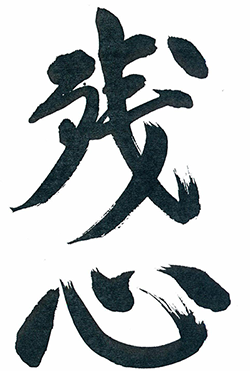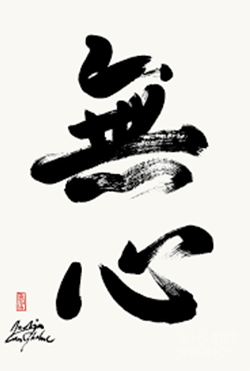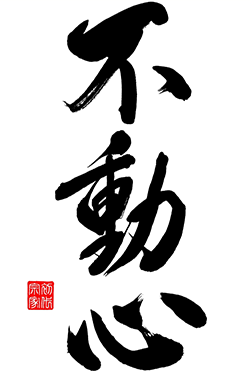Zanshin, Mushin, Fudoshin: Apply the ways of Karate-do to harness the Warrior’s Mind
These three states of the warrior’s mind are old world Zen based ways of looking at things. But they could quite possibly be secrets to understanding ourselves and the world around us. When practiced they lead us down the path of enlightenment and carrying a true warrior’s spirit through all of life’s wins and losses. I believe these three mindsets are essential to practicing Karate-do.
Zanshin — The Fighting Mind
Definition: Total awareness, alertness —being aware of your surroundings and enemies, while being prepared to react.

Often when we are sparring or in the middle of an athletic effort our mind is in a state of Zanshin. We are focused on our foe, we have tunnel vision and at the same time we are aware of our immediate surroundings but without concern for the outcome.
When we are in this state, we don’t allow the expected results to affect how hard we go at the effort. Even if loss is eminent we still fight on as hard as we can. For a fighter, if you should win you go on without focus or concern for the win (don’t get a big ego) and if you lose you go forward with a strong spirit and willingness to learn from it. Therefore, there is no real loss or win only a state of awareness and learning.
Zanshin is not only for when you are fighting, after all; We should apply the way of Karate to all things, therein lies its beauty.
There is an even deeper application of this concept. When we choose to live intentionally and act with purpose we no longer fall victim to whatever happens to us throughout our day.
Both in fighting and in everyday life, you should be determined though calm. Even when your spirit is calm do not let your body relax, and when your body is relaxed do not let your spirit slacken. — Miyomoto Musashi
How can we practice Zanshin in something other than a fight?
- Focus only on your current task: Do not get sidetracked when you are working on something. Stay on target and do not multi-task (it’s proven to not work after all)
- Don’t get caught up in the outcomes: Only doing something because you expect an outcome is a surefire way to sell yourself out. For example; if you’re only helping someone move because you plan to ask to borrow money from them.
- Don’t get complacent: Don’t expect to win just because you’ve won before, things change and you must still prepare and practice.
- Be Resilient: If you get knocked down, get back up.
There are surely more, but this is a good way to start.
Here is another great story of Zanshin: Learning the Art of Attention and Focus From a Legendary Samurai Archer
Mushin — ‘Mind No Mind’
Definition: A mind not fixed or occupied by thought or emotion and thus open to everything.

Mushin is the Zen concept of ‘mind without mind’. The term is a shortened form of ‘Mushin no shin’. In Karate-do we have the 6th Guiding Principle handed down to use from Gichin Funakoshi that is: The mind must be set free. If we remain cluttered mentally, focused on something else, something other than what we are immediately engaged in — we fail.
Mushin is the state of mind that is not fixed on any one thing, not cluttered up by your everday thoughts or emotions. In combat this is essential because you must not try to guess what your opponent is going to do next, you must simply experience and react to them.
The Zen concept of Mushin is anlog to the Japanese “Mizu no Kokoro” or the “mind like water.” Or a state of mind that is in harmony with oneself and ones
Empty your mind, be formless, shapeless like water if you put water in the cup it becomes the cup and water can flow or it can crash. — Bruce Lee
Mushin is achieved when your mind is free from randomness, confusion, anger, fear, sadness, happiness and particularly the ego… the example of combat is an effective one. When you are experiencing it you should not respond with what you think your next move should be, but rather you should respond with what you have trained your body and subconscious mind to do. Some might even call this ‘muscle memory’.
In Karate we practice Kata. Kata is a floor exercise of Karate movements fighting one or more imaginary attackers. It is not easy for a beginner to do a Kata and not think about what their feet and hands should be doing or what move comes next. While the experienced practitioner moves through the Kata based on what feels like they should be doing next. The signals no longer seem to come from the brain down to the limbs but it feels as if it is coming from within. A novice can only move through the Kata as kind of a strung-together Karate dance.
It is said that when you practice Kata — you should also practice Mushin.
How can we practice Mushin in our daily lives?
- Be Present: How often are you with your loved ones, like physically present but not really emotionally present and available… Do you go out to dinner with someone but spend most of your time looking at your phone? Reverse course on these examples and really be there when you’re together.
- Practice, practice, practice: The only thing between you and success is practice. Do you remember how long it took you to learn to tie your shoes when you were a kid? You probably tried and tried and tried until you finally got it. Why do you stop working towards your goal like that now? Is it possibly your ego getting in the way?
- Don’t Judge: Experiencing life without constantly comparing it to how you think things should be is difficult. It’s even more difficult to remove our judgements and preconceived notions about people. But this is quite possibly the secret to making lifelong friends and making true connections with others in life.
Fudoshin —The Immovable Mind
Definition: It is a philosophical or mental dimension to Japanese martial arts which contributes to the effectiveness of the advanced practitioner.

The “immovable mind” or “immovable heart”; in western culture we think of this as “courage under fire”. This is the warrior’s mental state of being unbreakable.
When you set your mind on something and let NOTHING stand in your way to getting what you want or achieving your goal that is Fudoshin. It doesn’t mean to achieve your goal at all costs, doing it without bringing harm to others is essential. But the central concept is the unbreakable will to finish what you started.
Zen practice teaches us about the four sicknesses of the mind (or “Shikai”) which are; anger, doubt, fear, and surprise. Each of these can erode your Fudoshin mindset so you must guard against them. We are bombarded by these forces (or the fear of these forces) everyday around us with things like; COVID, random acts of violence, road rage incidents, people’s general lack of self-control and the nightly news, to be honest. But you still get up and go out into the world and do what you need to do… learning to harness the mindset that makes you do this is powerful.
Mankind is divided into three classes: those who move, those who are movable, and those who are immovable. — Benjamin Franklin
I cannot tell you how many times i’ve been confronted by the forces that hold me back from achieving my goals. Let’s see if this is familiar territory; You want to get in shape, so you set your alarm to go to the gym at 6am. 6am rolls around and you lay there in bed thinking of 100 different things to get you out of going to the gym instead of just getting up and getting going…
The answer isn’t some mystical Zen enlightened verse… it’s simple, you just have to get up. You have to take action. Action…
How can we practice Fudoshin in our daily lives?
- Not Anger but Belief: Lose the anger. Being unbreakable isn’t about bringing your anger to bear on the task or goal. It is about having belief in yourself to get the job done.
- Start small: Why do most New Years Resolutions fail? Because the goal is too darn big. You can’t expect to lose 50 pounds in a single month. If it took 10 years to gain the weight, what makes you think it’ll fall off in just a few weeks? Good things take time, plan for it. Set small goals and knock them off the list one at a time.
- Harness the power of NO: Use your conscious will against your subconscious will. If you struggle to lose weight because you eat all the cookies in your house, then practice NO and never bring cookies into your house in the first place. Your conscious planning will beat your subconscious cravings because the thing you crave won’t be present.
- Do what you say you will do: If you tell someone you will do something, you need to do it. Nothing will harm your reputation more or make you self-conscious more than not following through. If you can’t show up for others, how do you expect to show up for yourself.
None of this is easy, but this is why not everyone can have a Warrior’s Mind.
Please support our sponsors:
 Use “warriormindset” when you check out. |
 |

0 Comments